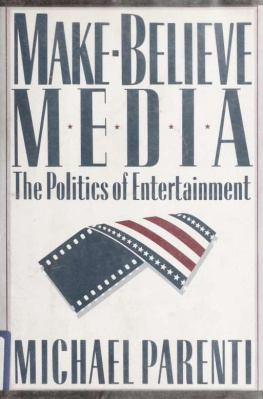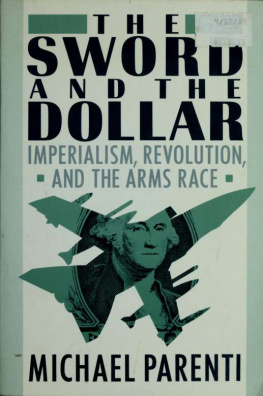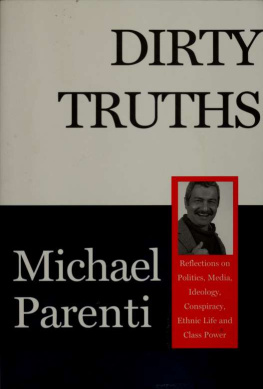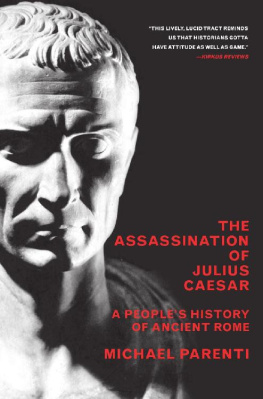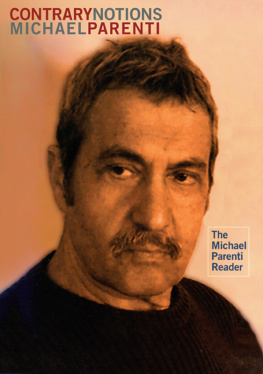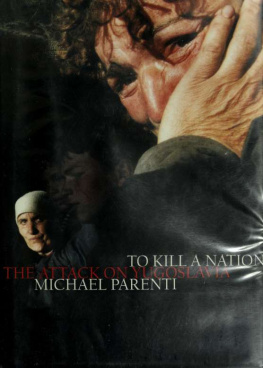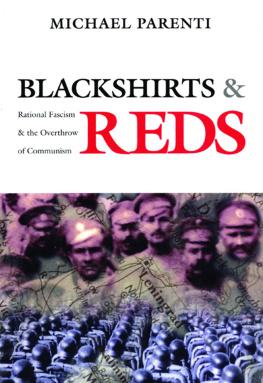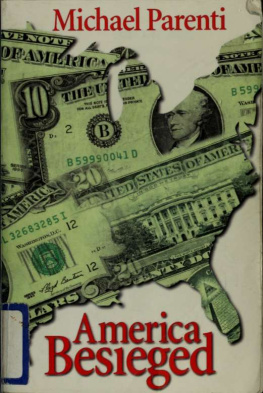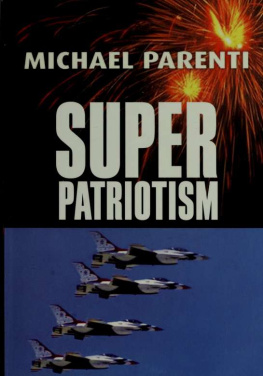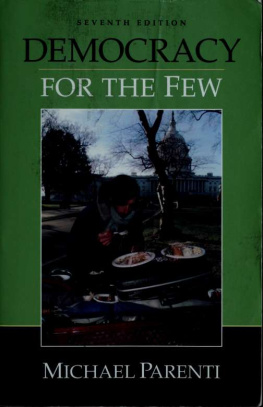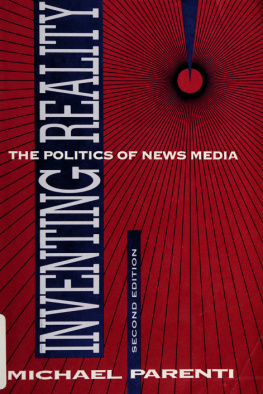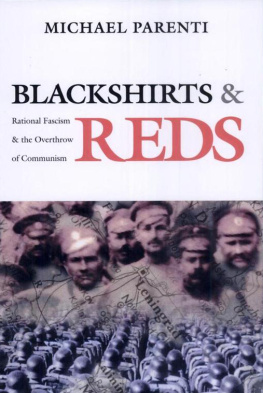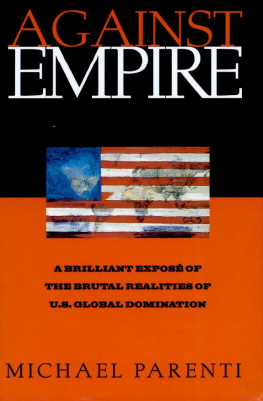To Howard Kahn, John Rocco Lombardi, Bertell Oilman, Paule Oilman, James Petras, Sally Soriano, Barbara Tillman, Bob Campus, Marvin Gettleman, Ellen Schrecker, Jim Sober, Sarah Burke, Lloyd Raines, Laura Akgulian, Tim Weber, Salvatore Bizzarro, David Barsamian, and Joseph Papaleo. Fortunate is the person with a treasure of friends.
Preface
Make-believe Media tells how movies and television have propagated images and themes that support militarism, imperialism, racism, sexism, authoritarianism, and other undemocratic values. I discuss many films and television programs. Do I select only the ones that paint the entertainment media in the worst possible light? If anything, I give disproportionately greater attention to the relatively few quality films and programs of progressive hue. While only a small fraction of the immense number of films that boost militaristic, anti-labor, and other conservative themes are treated herein, many more of the progressive ones are touched upon. Thus, the selection is skewed toward the more enlightened productions.
For almost every criticism I make of the make-believe media, one could find some exceptions. I do not claim that the political biases criticized on the pages ahead are the only ones in the entertainment media, but they are the predominant ones.
Some readers will maintain that one or another topic has not been given sufficient treatment. There is no separate chapter on women, for instance. But I do deal with the way women are treated or mistreated by the media within the context of almost every chapter in this book. There is no mention of gays and lesbians or the elderly, and only scant mention of the media's stereotypic treatment of Latinos, Asians, Arabs, Native American Indians, and various other social groups and themes. All I can do is plead for a division of labor. There was no way I could do justice to every important subject and keep this volume to a manageable size. The interested reader should consult the references provided at the end of the book that deal with the areas I have not treated.
Even for the subjects I do cover, I make no claim that the treatment is definitive. Many films and programs have gone unmentioned, including no doubt some that the reader loves or loves to hate.
My hope is that readers will find this critical treatment of the entertainment media to be entertaining as well as informative. There is nothing wrong with mindless relaxation in front of a screen now and then. What is wrong is when it becomes the national pastime, a way of life, preempting our experiences and providing us with a prefabricated understanding of what the world is supposed to be. And this it does for too many people.
So I hope this book leaves at least some individuals better attuned to what is false, contrived, and politically distorted about our entertainment media. Perhaps a better awareness of such things will cause us to waste fewer hours of our precious lives in front of both the big and little screens, allowing us more time for reading, conversing, relating to our friends and families, criticizing social injustice, and becoming active citizens of our society and the agents of our own lives.
Acknowledgments
I wish to thank Shelley Moskowitz, Linda Valentino, Kathy Lipscomb, and Jane Hallaran for the important assistance they rendered. Eric Smooden of American University has my appreciation for his valuable criticisms as do Steve Barkin, University of Maryland-College Park, and Timothy Cook, Harvard University.
Once again the staff at St. Martin's Press has proven most helpful in the production of this book, especially my editor Don Reisman, who is the best editor an author might hope for, and my project editor, Elise Bauman. My thanks also to Hollywood producer Edward Lewis, who provided me with some helpful information.
Michael Parenti
1. Political Entertainment
Make-believe. The term connotes the playful fantasies of our childhood, a pleasant way of pretending. But in the world created by movies and television, make-believe takes on a more serious meaning. In some way or other, many people come to believe the fictional things they see on the big and little screens. The entertainment media are the make-believe media; they make us believe.
Today, very little of our make-believe is drawn from children's games, storytelling, folktales, and fables, very little from dramas and dreams of our own making. Instead we have the multibillion-dollar industries of Hollywood and television to fill our minds with prefabricated images and themes. Nor are these just idle distractions. I will argue that such images often have real ideological content. Worse still, they discourage any critical perception of the great and sometimes awful realities of our lives and sociopolitical system, implanting safe and superficial pictures in our heads. Even if supposedly apolitical in its intent, the entertainment industry is political in its impact.
How can we speak of Hollywood films and television shows as being purely entertainment when they regularly propagate certain political themes and carefully avoid others? To borrow Robert Cirino's phrase: We're being more than entertained.1 Hollywood and television are permeated with class, racial, gender, and other political biases. George Gerbner argues that all media carry a hidden curriculum of values and explanations about how things happen.2 The sociologist Hal Himmelstein believes that through its settings, music, words, and stories, television has become one of our society's principal repositories of ideology.3 A leading communications critic, Herbert Schiller, writes that one central myth dominates the world of fabricated fantasy; the idea that [media] entertainment and recreation are value-free, have no point of view, and exist outside ... the social process .4 Another critic, Erik Barnouw, concludes: Popular entertainment is basically propaganda for the status quo.5
In accord with those observations, I will try to demonstrate in the chapters ahead that over the years, films and television programs have propagated images and ideologies that are supportive of imperialism, phobic anticommunism, capitalism, racism, sexism, militarism, authoritarian violence, vigilantism, and anti-working-class attitudes. More specifically, media dramas teach us that:
- Individual effort is preferable to collective action.
- Free enterprise is the best economic system in the world.
- Private monetary gain is a central and worthy objective of life.
- Affluent professionals are more interesting than blue-collar or ordinary service workers.
- All Americans are equal, but some (the underprivileged) must prove themselves worthy of equality.
- Women and ethnic minorities are not really as capable, effective, or interesting as White males.
- The police and everyone else should be given a freer hand in combatting the large criminal element in the United States, using generous applications of force and violence without too much attention to constitutional rights.
- The ills of society are caused by individual malefactors and not by anything in the socioeconomic system.
- There are some unworthy persons in our established institutions, but they usually are dealt with and eventually are deprived of their positions of responsibility.
- U.S. military force is directed only toward laudable goals, although individuals in the military may sometimes abuse their power.

